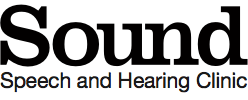'Hidden hearing loss' in college-age human subjects
/Researchers from Massachusetts Eye and Ear have linked symptoms of difficulty understanding speech in noisy environments with evidence of cochlear synaptopathy ('hidden hearing loss') in college-age subjects with normal hearing sensitivity. Stephane Maison, Ph.D., led a research team that showed a significant correlation between performance on a speech-in-noise test and an electrophysiological measure of the health of the auditory nerve. Many of the young adults in the study regularly overexposed their ears to loud sounds, and the research team also saw significantly better scores on both tests among subjects who regularly wore hearing protection when exposed to loud sounds. Dr. Maison outlines the study describing, "while hearing sensitivity and the ability to understand speech in quiet environments were the same across all subjects, we saw reduced responses from the auditory nerve in participants exposed to noise on a regular basis and, as expected, that loss was matched with difficulties understanding speech in noisy and reverberating environments". Check out the article in PSYPOST describing the study and the original published findings PLOS.
Electrocochleography shows evidence for cochlear synaptopathy in the high-risk group. (Fig 2: liberman. ET AL., (2016) TWOARDS A DIFFERENTIAL DIAGNOSIS OF HIDDEN HEARING LOSS IN HUMANS. PLOS ONE 11(9). E0162726. DOI: 10.1371/JOURNAL.PONE.0162726


